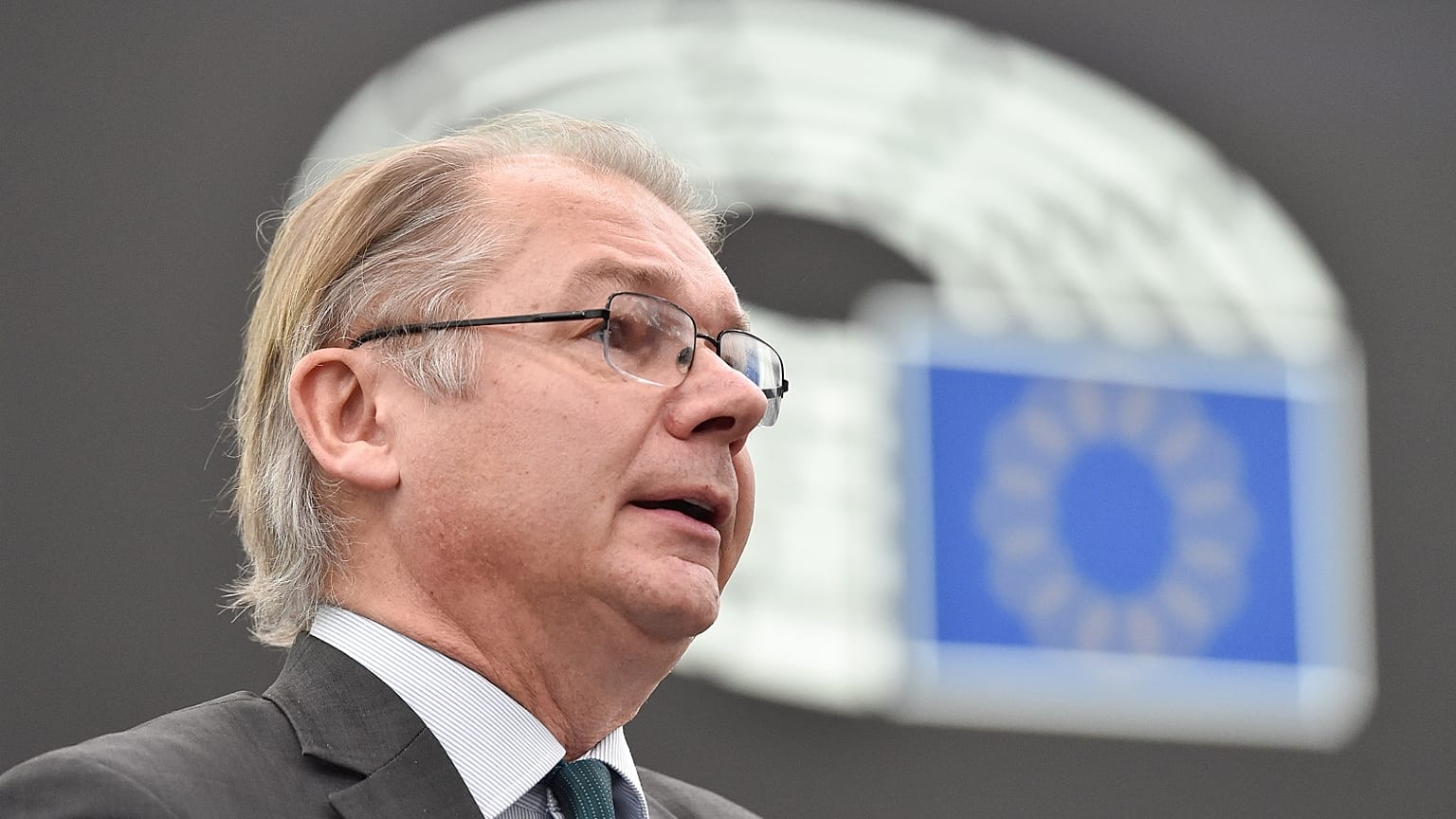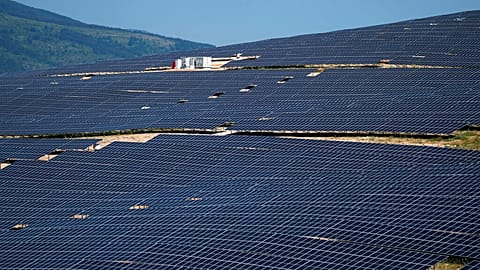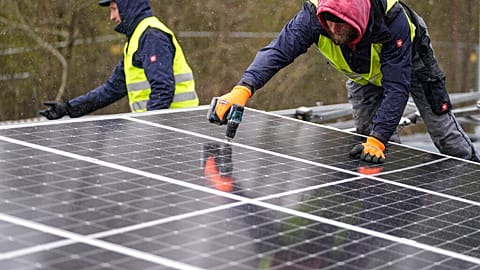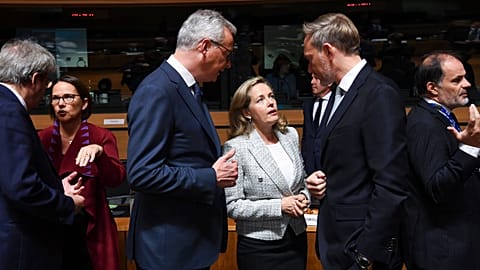The co-president of the Greens in the European Parliament has warned the EU's transition to net-zero greenhouse gas emissions is doomed to fail unless the bloc relaxes rules on government debt and deficit spending, as he presented a new report highlighting the scale of investment needed.
A senior Green MEP has warned that maintaining strict limits on government debt and deficit spending for reasons of “ideological dogma” could torpedo EU efforts to slash greenhouse gas emissions to net-zero by mid-century.
Presenting an analysis commissioned by the Greens/EFA group in the European Parliament, co-president Philippe Lamberts said on Tuesday (30 January) that it was futile to hope that private finance will provide all of the €40tn the report’s authors estimate will need to be invested up to 2050.
Lamberts pointed to EU plans to massively improve the energy efficiency of Europe’s building stock. “Many homeowners in Europe have only, as capital, their home – they don’t have an extra one or two hundred thousand euros to refurbish it,” he said. “So without massive public support, the renovation wave will not happen.”
The report from the Rousseau Institute, a French think tank, suggests European governments will need to channel the equivalent of an additional 1.6% of GDP into the energy transition, roughly doubling public expenditure to €510bn a year across the bloc in order to attract private investment. Some two thirds of the additional investment will be needed in the buildings and transport sectors, it concludes.
But reforms currently underway to the EU’s strict fiscal rules, which set an upper limit on national debt at 60% and the budget deficit at 3% of annual gross domestic product (GDP), do not go anywhere near far enough to free up the necessary public finances, Lambert told reporters in Brussels.
Crucially, he said, neither governments nor the European Parliament, who are currently hammering out a compromise on the rules, have agreed to the idea of a carve-out for spending on green infrastructure. France had led a group of countries pushing for such public investments to be excluded from the calculation of required adjustments when countries run up an excessive deficit.
“The fiscal rules as being discussed at the moment will make these investments legally impossible,” Lamberts said. Even countries that do not have excessive debts would be unlikely to channel public money into the transition. “Member states will not consider these investments simply because they want to remain within the boundaries set by the rules,” the Belgian lawmaker said.
“Sorry but you cannot look at reality with the eyes of an…ideologically blinded accountant, and that’s what is happening at the moment,” continued Lamberts, who as a shadow parliamentary rapporteur for the economic governance review was preparing for an evening round of negotiations behind closed doors. “We have to be realists, not ideologues here. This is about survival.”
Presenting the report alongside Lamberts, lead author Guillaume Kerlero de Rosbo tried to put his team's estimate of the required additional public spending into perspective. The report points out that the sum is less than the EU’s €338bn in covid recovery funding, or the annual €359bn member states spend subsidising fossil fuels. “We think it’s very import to contextualise this extra €260bn of public money,” Kerlero de Rosbo said.
As well as coming just hours ahead of the latest round of negotiations on the EU’s new fiscal rules, the report was published exactly a week before the European Commission is due to publish on 6 February its recommendations for a new 2040 greenhouse gas emissions reduction target. A leaked draft of the communication circulated in Brussels last week suggests the Commission intends to back a 90% reduction on net emissions compared to 1990, the lower end of a five-point range recommended by the EU’s independent scientific advisory board.


















